Bruh
Bruh
More Posts from Erubaba and Others
Console-free Camping
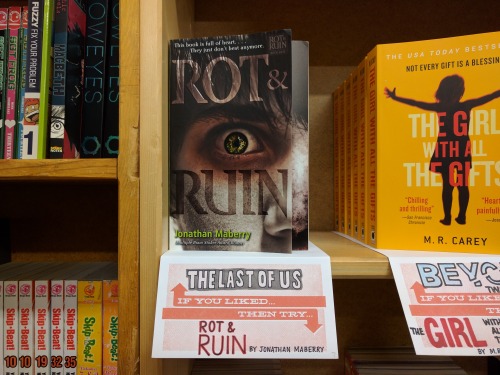
If you like to play The Last of Us, then try Rot & Ruin by Jonathan Maberry
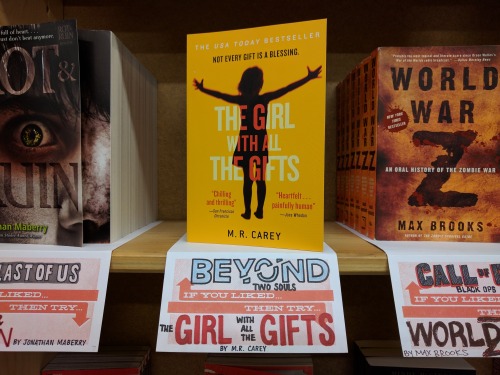
If you like to play Beyond: Two Souls, then try The Girl With All the Gifts by M.R. Carey

If you like to play Call of Duty: Black Ops (Zombies), then try World War Z by Max Brooks

If you like playing Grand Theft Auto, then try American Psycho by Bret Easton Ellis
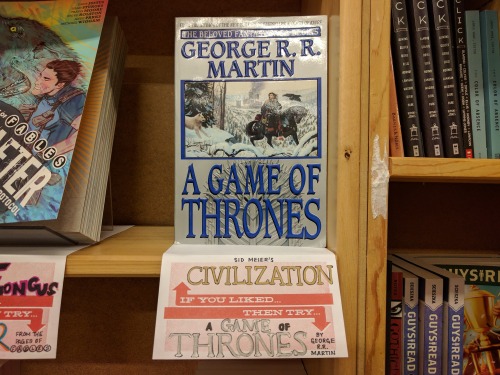
If you like playing Sid Meier’s Civilization, then try A Game Of Thrones by George R. R. Martin
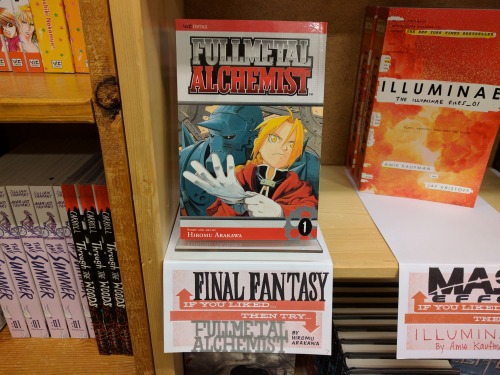
If you like playing Final Fantasy, try playing Fullmetal Alchemist by Hiromu Arakawa

If you like playing Mass Effect, then try Illuminae by Amie Kaufman and Jay Kristoff
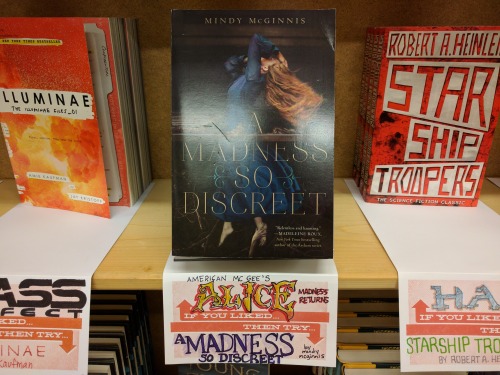
If you like playing Alice: Madness Returns, then try Madness So Discreet by Mindy McGinnis
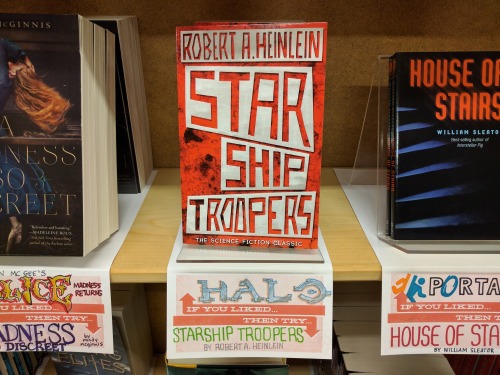
If you like playing Halo, then try Starship Troopers by Robert A Heinlein

If you like playing Portal, then try House Of Stairs by William Sleator
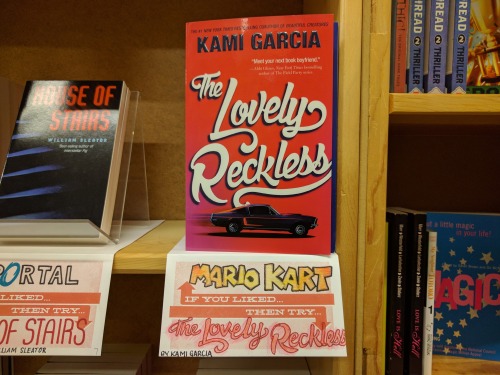
If you like playing Mario Kart, then try The Lovely Reckless by Kami Garcia
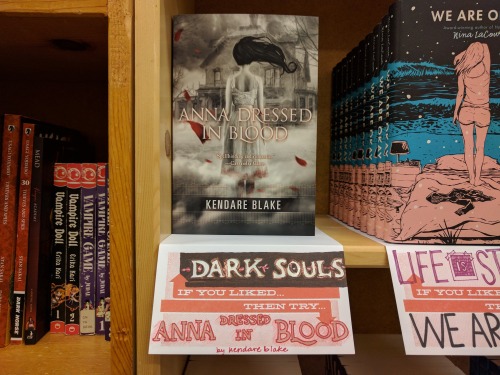
If you like playing Dark Souls, then try Anna Dressed in Blood by Kendare Blake

If you like playing Life Is Strange, then try We Are Okay by Nina Lacour
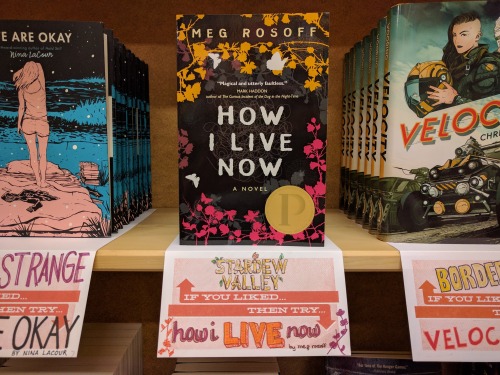
If you like playing Stardew Valley, then try How I Live Now by Meg Rosoff
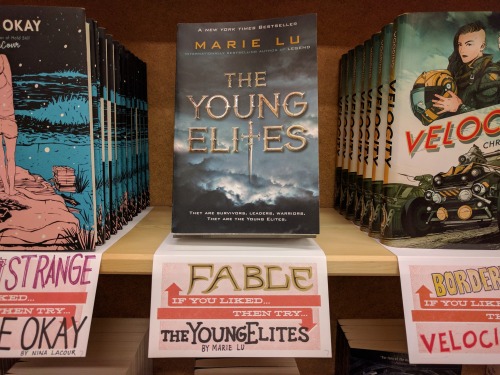
If you like playing Fable, then try Young Elites by Marie Lu

If you like playing Borderlands, then try Velocity by Chris Wooding
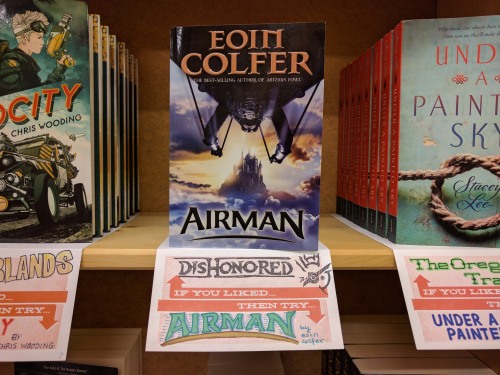
If you like playing Dishonored, then try Airman by Eoin Colfer
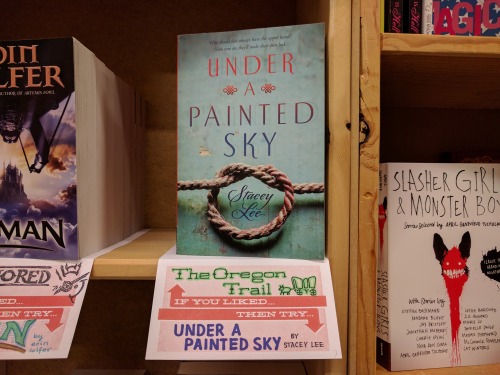
If you like playing The Oregon Trail, then try Under a Painted Sky by Stacey Lee
If you like playing the Elder Scrolls series, then try The Naming by Alison Croggon
If you like playing Red Dead Redemption, then try Vengeance Road by Erin Bowman
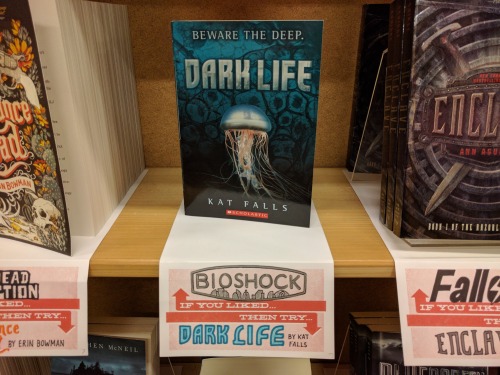
If you like playing Bioshock, then try Dark Life by Kat Falls

If you like playing Fallout, then try Razorland by Ann Aguirre

If you like playing Assasin’s Creed, then try The Way of Shadows Night by Brent Weeks
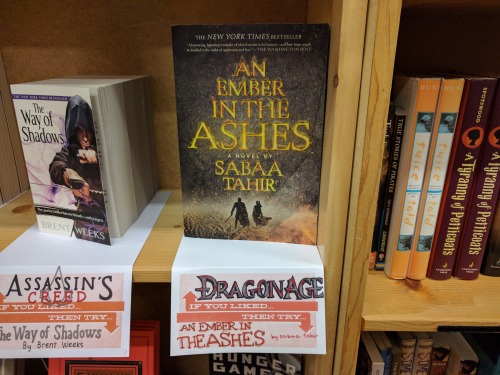
If you like playing Dragonage, then try Ember in the Ashes by Sabaa Tahir
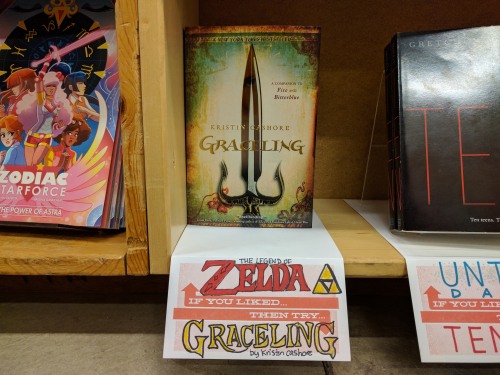
If you like playing The Legend of Zelda, then try Graceling by Kristin Cashore
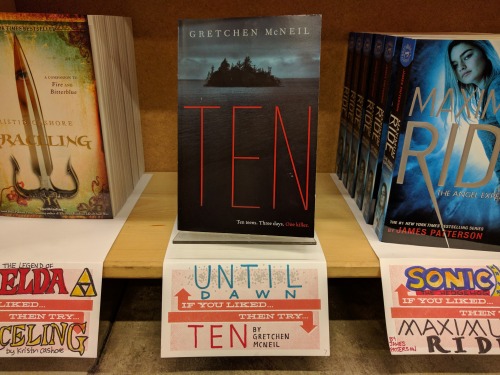
If you like playing Until Dawn, then try Ten by Gretchen McNeil
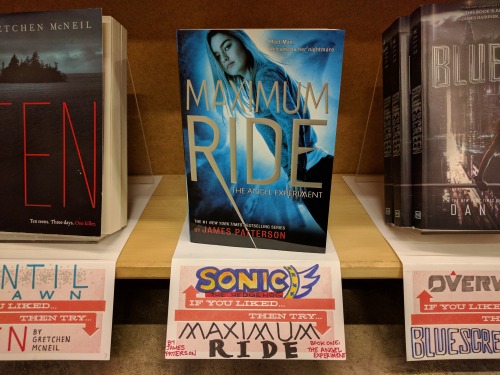
If you like playing Sonic, then try Maximum Ride by James Patterson
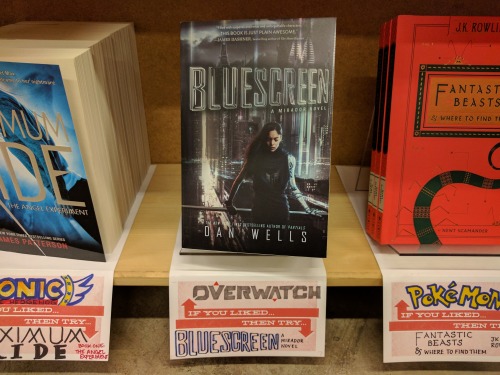
If you like playing Overwatch, then try Bluescreen by Dan Wells
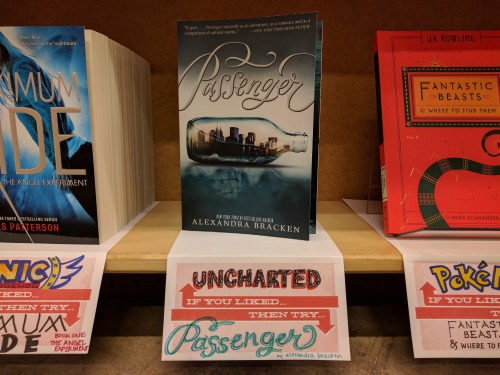
If you like playing Uncharted, then try Passenger by Alexandra Bracken

If you like playing Pokemon, then try Fantastic Beasts & Where to Find Them by JK Rowling, and Newt Scamander
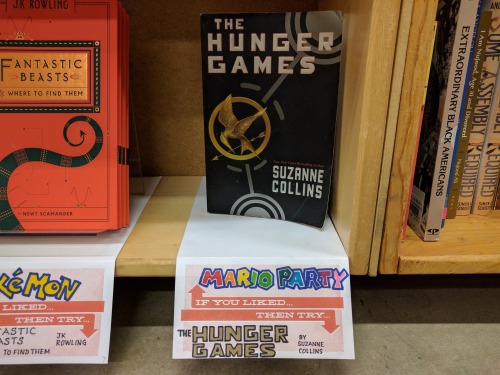
If you like playing Mario Party, then try Hunger Games by Suzanne Collins
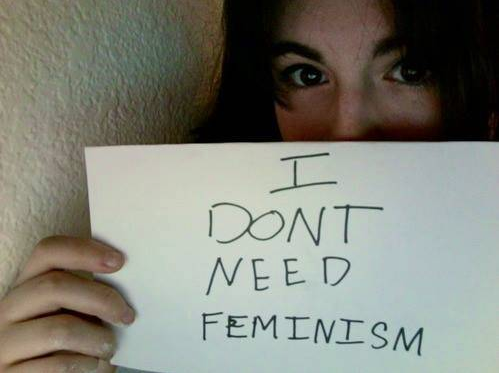
A Response to ‘Women Against Feminism.’
Imagine this:
The year is 2014. You are a white Western woman. You wake up in the morning in a comfortably sized house or flat. You have a full or part-time job that enables you to pay your rent or mortgage. You have been to school and maybe even college or university as well. You can read and write and count. You own a car or have a driver’s licence. You have enough money in your own bank account to feed and clothe yourself. You have access to the Internet. You can vote. You have a boyfriend or girlfriend of your choosing, who you can also marry if you want to, and raise a family with. You walk down the street wearing whatever you feel like wearing. You can go to bars and clubs and sleep with whomever you want.
Your world is full of freedom and possibility.
Then you pick up a newspaper or go online. You read about angry women ranting about sexism and inequality. You see phrases like ‘rape-culture’ and ‘slut-shaming.’ You furrow your brow and think to yourself: ‘What are they so angry about? There is no such thing as sexism anymore.’
Now imagine this:
The year is 2013. You are a 25 year-old Pakistani woman. A few months ago, you married the man you love. A man you choose for yourself. You are also pregnant with his child. You see your life stretching out before you, filled with hope and happiness. Suddenly, you and your husband are dragged away from each other. You are both beaten with bricks and batons. You can’t fight back. You can’t escape. No one comes to help you. Through your fading vision, you look up, and look into the eyes of one of your assailants: into the eyes of your father.
The year is 2013. You are a 23 year-old Indian woman. You are a physiotherapy student with a promising career ahead of you. You are sitting on a private bus travelling home alone on a warm December evening. You gaze out of the window as the buildings of New Dheli rush past you and feel content. Suddenly, a blunt force hits the back of your head and you fall to the floor of the bus. A group of strange men are standing over you. They bring the metal bar down on you again and again and again until all you can taste is the blood filling up your mouth. You pray that you will die soon. And you do, but not then. You are raped, beaten, and tortured over and over again. Death is slow and agonising.
The year is 2014. You are a 13 year-old girl from Niger. You no longer live there though. You are now living in the neighbouring country Nigeria, sitting alone in small room on a small bed in a small apartment high above the city of Kano. You are not allowed to leave. Your stomach is swollen from the unwanted life growing inside of it. You had no choice. The father is a man in his 40s. He is a businessman. He has bought you as his wife. You were a penniless, uneducated girl when he came for you. You don’t know of any life you could have had. Neither did your family: just one less mouth for them to feed. You still have the body of a child, and it’s straining under the pressure from the one inside of you. You feel like you’re about to be split in two. You don’t wonder if you will survive the birth. A part of you doesn’t want to.
These are fictionalised accounts of real events that have happened to real women living in our world today. They follow the past 250 years of women and men campaigning for women to be given equal rights to men to prevent these kinds of injustices and abuses on the grounds of gender taking place. Over the course of this time, campaigners – Feminists, both female and male – have been locked up, beaten, tortured, and even killed, in the pursuit of equality. They did this with pen and ink and print; they did this with their voices; they did this with their bodies; they did this with art and music; they did in courts of law and halls and houses of government that they fought be to allowed into.
They did this so that women would no longer been seen as property, livestock, breeding machines, sex objects, punching bags, or infantile morons. They did this not just for themselves, but also for their daughters, and their daughters, and their daughters for generations to come. They did this for women they would never meet – women who lived across countries, across vast oceans, across the entire globe, and even across time.
They did this so that women like me – a white Western woman – could attend school and university; to learn to read, write, and think critically; to gain a degree; to get a job and be paid an equal salary to a man in the same position; and to sit here with my own computer and type all of this.
Feminism is a movement for freedom, equality, choice, love, compassion, respect, solidarity, and education. We may argue, we may disagree, we may struggle to understand the choices and perspectives of others sometimes, but these core beliefs of the movement have never changed, and they never will.
That is why I am a Feminist.
If you feel that you have so far lived your life unaffected by even the mildest form of sexism – anything from feeling uncomfortable when a man catcalls you in the street, to feeling scared walking home alone at night in a secluded area – and are treated with love and respect by every man in your life, then to you I say: I’m glad for you. If you don’t think you need feminism, then that is a victory for the movement. You have fulfilled all those dreams that every suffragette being force-fed in prison and every ‘witch’ burnt at the stake dreamed you would one day.
But perhaps take a second to consider the life of the Pakistani woman who was beaten to death by her own family for marrying a man of her choosing. Or the life of the Indian woman who was raped, beaten, and murdered on a bus by a gang of men. Or the life of the little girl in Niger who was sold to a man more than twice her own age and forced to carry a baby that may kill her to deliver. Do they still need feminism?
And perhaps take a second to consider this too: Even in our liberal, Western world, why do women still only fill 24% of senior management jobs? Why are more women than men domestically abused or even killed every week at the hands of their male partner or ex-partner? Why is there still a pay gap (in the UK specifically) of 15% for women doing the same jobs and working the same hours as men?
And what about on a cultural level? Have you ever noticed how comedy panel shows usually only have one female panellist compared to 4-5 male ones? That almost every dieting product on the market is solely aimed at women? How a lot of newspapers and advertising campaigns will use a sexualised or pornographic image of a woman to sell news or products that have nothing to do with sex?
Or perhaps on a personal level: Do you choose to wear certain clothes because you want to or because you feel ‘unfeminine’ if you don’t? Do you choose to cover yourself up because you want to or because you feel ashamed or intimidated by a man looking at your body? Do you shave your legs and underarm hair because you want to or because you will look ‘ugly’ if you don’t? Did your parents dress you in pink as a baby because they liked the colour or because you were born a girl? Do you want to have children because you want to or because you are a woman?
When you look at yourself in the mirror in the morning, do you see yourself through your own eyes, or through the eyes of the men that will look at you when you walk out the door?
The fact is, like it or not, you still live a world where gender matters. Where gender controls not just the entire course of your life – but the lives of women all over the world. Every second, a child will be born female in a country where she will persecuted for this random biological occurrence for the rest of her life. So before you hold up your anti-Feminist placard proudly and smile at your own sense of empowerment, think not what Feminism can do for you, but what it can do for that one girl. She needs someone to stand up for her. That someone could be you.
[ x ]
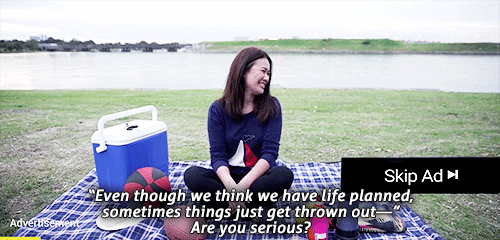


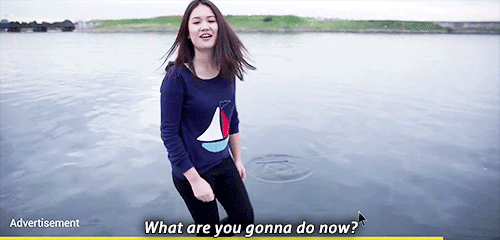

How did the movie compare with your expectations?
Traci Kato-Kiriyama: It was stunning visually, but emotionally it didn’t draw me in.
Keiko Agena: It was harder to watch than I thought it was gonna be. To get emotionally invested, you have to really care that she needs to find out who she is. But when she finally meets her mom, my gut felt so weird in that moment.
Kato-Kiriyama: That scene was devastating on all levels. It got me because of the emotion of the mother [veteran Japanese actress Kaori Momoi]. She’s really wonderful. That scene should have been beautiful, but Major had nothing in her eyes. Acting-wise, what a missed moment.
Atsuko Okatsuka: I wasn’t aware they were gonna explain the whitewashing. I thought it was just going to be an action film, no explanation, just go with the fact that it’s a future Japan with this robot cop. And then to be like, “Oh shit, I used to be a Japanese woman!” (Laughter) That was against my expectations.
How did you feel when that twist was revealed?
Agena: That was hard, y’all. Hard and awkward.
Ai Yoshihara: Major’s backstory is white people trying to justify the casting.
Okatsuka: And they f—ed up in the process because now it looks even worse. The text at the beginning of the movie explained that Hanka Robotics is making a being that’s the best of human and the best of robotics. For some reason, the best stuff they make happens to be white. Michael Pitt used to be Hideo.
Agena: That was the other cringe-worthy moment, when they called each other by their Japanese names. We’re looking at these beautiful white bodies saying these Japanese names, and it hurt my heart a little bit.
Kato-Kiriyama: It was supposed to be so touching and intimate, and it felt gross. And kind of laugh-worthy at the same time.
Okatsuka: I would have preferred them just using American names. “You used to be Bob.”

{ dazed and confused }
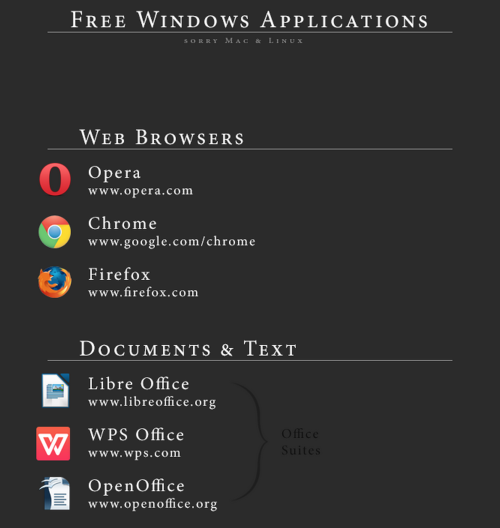
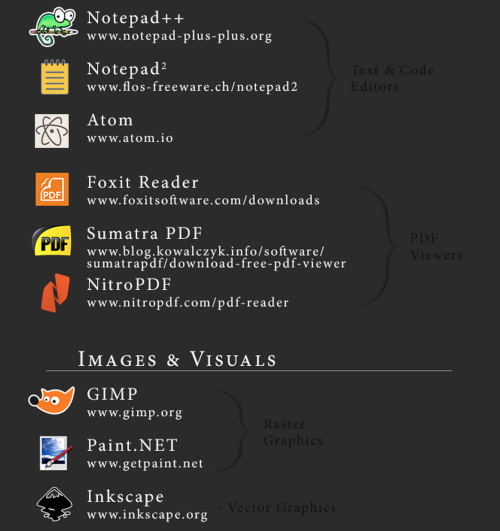

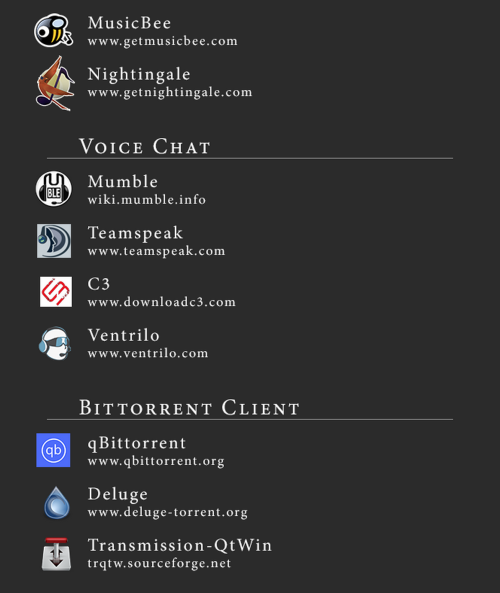



windows users, save money using these free apps!!











Gesture Studies, by Ben Li
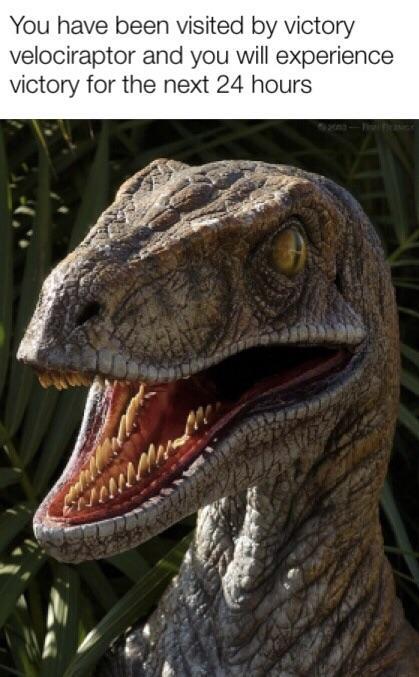
Men’s Issues
Societal expectations of masculinity
Societal expectations to provide for women
No long term reversible male birth control
Men who are raped are more likely to remain silent and be dismissed or outright laughed at
Unfair treatment in child custody battles
Alimony
No support for male victims of domestic abuse
Not men’s issues
The friend zone
Women not dating you
“Fucking femnazis”
Boooom
-
 shinybiterenthusiast liked this · 3 months ago
shinybiterenthusiast liked this · 3 months ago -
 randr1628 liked this · 1 year ago
randr1628 liked this · 1 year ago -
 thegrandcollectorbin liked this · 1 year ago
thegrandcollectorbin liked this · 1 year ago -
 singducobibfast liked this · 1 year ago
singducobibfast liked this · 1 year ago -
 hayleymulch-art liked this · 1 year ago
hayleymulch-art liked this · 1 year ago -
 hellosaidthemoonisafangirl liked this · 2 years ago
hellosaidthemoonisafangirl liked this · 2 years ago -
 chaos-confusion liked this · 2 years ago
chaos-confusion liked this · 2 years ago -
 pouchofholding reblogged this · 2 years ago
pouchofholding reblogged this · 2 years ago -
 kushkimmy liked this · 2 years ago
kushkimmy liked this · 2 years ago -
 ominari liked this · 2 years ago
ominari liked this · 2 years ago